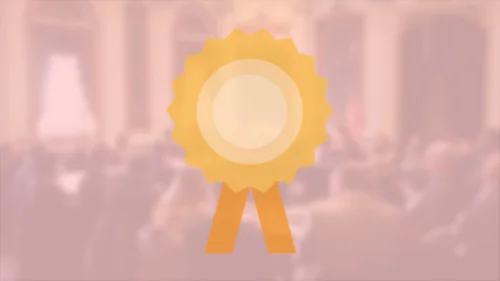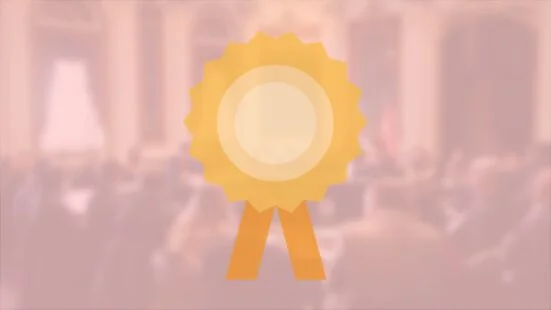A recent Federal Circuit decision addressing the constitutionality of inter partes review (IPR)—a Patent Office review of a patent that has already been issued—is a positive development for promoting patent quality and leveling the playing field for startups involved in patent litigation. In Celgene Corp. v. Peter, the court held that IPR proceedings which result in the cancellation of issued patent claims are not an unconstitutional taking of private property. While it seems likely the Supreme Court will eventually weigh in on the question, for now IPRs remain available to startups who want to ask the U.S. Patent and Trademark Office (USPTO) to take a second look at weak patents that arguably should have never issued.
IP Recap - 8/07/19
Startups facing patent litigation should be aware of recent, positive developments in patent venue law. This area of law dictates where a patentee-plaintiff can file an infringement lawsuit, and requires that a startup (or any company) can only be sued in a location (judicial district) where it has sufficient presence. Importantly, recent legal developments restrict parties—including patent assertion entities (PAEs), sometimes referred to as “patent trolls”—from suing startups in far-flung, plaintiff-friendly judicial districts. This levels the playing field in abusive patent litigation and benefits startups, who should no longer be required to defend litigation far from “home.”
CASE Act does not offer viable solution to online infringement
The Senate Judiciary Committee is taking up a bill today that would change copyright enforcement in the U.S. and open up startups and their users to new risks. The bill, the CASE Act (S.1273), would create a process for copyright holders to address online copyright infringement by establishing a Copyright Claims Board within the U.S. Copyright Office to adjudicate copyright infringement and award substantial financial damages without the traditional safeguards of federal court.
Engine Submits Comments on Section 101 to Senate Judiciary Subcommittee
The Subcommittee on Intellectual Property of the Senate Judiciary Committee recently held a series of hearings on the topic of patent subject matter eligibility. That Subcommittee is considering potential amendments to 35 U.S.C. §101—the provision of the Patent Act that defines what subject matter is (and is not) eligible for patent protection. In our view changes to 35 U.S.C. §101 are not needed, and we submitted comments to the Subcommittee articulating our concerns.
Statement on Introduction of the CASE Act
Engine Joins Brief in Copyright Case
Engine has joined an amicus brief urging the U.S. Supreme Court to review State of Georgia v. Public.Resource.Org Inc., which will determine the extent to which a state may exclude citizens from government works under copyright law.
Engine Weighs in on Section 512 Study
Earlier this week, Engine representatives participated in the U.S. Copyright Office’s Roundtable discussion on the impact and effectiveness of section 512 of the Digital Millennium Copyright Act (DMCA). The DMCA—and the safe harbor provisions of the bill included in section 512— provide a framework to grant online service providers limited liability protections for copyright infringement stemming from user-generated content.
Statement on European Parliament’s Vote on Copyright in the Digital Single Market
Primer: Copyrights
Primer: Patents
Engine Files Amicus in HP v. Berkheimer
Engine filed an amicus petition to the Supreme Court of the United States on Tuesday, November 13th to urge the court to consider the case. In our brief, we argue that the Federal Circuit’s decision in the case conflicts with the Supreme Court’s ruling on patentable subject matter eligibility.
Statement on USPTO Director Iancu’s Speech to the Eastern District of Texas Bar Association
Last week, United States Patent and Trademark Office Director Andrei Iancu gave a speech to the Eastern District of Texas Bar Association, where he implied that patent trolls were not a real problem faced by innovators, but instead just a “narrative” made up to scare away innovators. Not only is this factually inaccurate, but it is troubling that Director Iancu would ignore the overwhelming data showing that low-quality patents have led to a rash of abusive patent litigation directed towards small companies and entrepreneurs over the past decade.
USPTO Weakens Important Program for Fighting Patent Abuse
One Year After TC Heartland, Texas NPEs Migrate to Greener Pastures
A year after the Supreme Court’s unanimous decision in TC Heartland LLC v. Kraft Food Group Brands LLC, however, Marshall may be returning to the normalcy of tumbleweeds and prairie, as NPEs who once filed there flock instead to other jurisdictions.
Engine Statement on House Judiciary Committee Oversight Hearing of USPTO Director Iancu
Engine Statement on Recent Attacks to our Patent System
Startups Strongly Oppose The STRONGER Patents Act
Today, Reps. Steve Stivers (R-OH) and Bill Foster (D-IL) introduced a House version of the STRONGER Patents Act (S.1390), which would hobble the U.S. Patent and Trademark Office’s internal review system for challenges to overly broad, obvious patents and overrule decades of Supreme Court decisions on patent issues, exposing technology users to increased litigation.
Panel Round-Up: Design Patents and Defining the Article of Manufacture
The panel discussion, “Design Patents and Defining the Article of Manufacture – One Year Later,” was moderated by Julie Samuels, President of the Board at Engine Advocacy and Executive Director at Tech:NYC. The expert panel also featured Charles Duan, Senior Fellow and Associate Director of Tech and Innovation Policy at R Street Institute; G. Nagesh Rao, a 2016 USA Eisenhower Fellow and former Patent Examiner and Senior Policy Advisor at the USPTO; and Matthew Levy, former Patent Counsel at the Computer and Communications Industry Association (CCIA).
2017 Year in Review: Patents
While patent trolls remain a problem, in 2017, startups started to see some relief from nefarious patent litigation. The decrease in patent litigation abuse stems largely from meaningful Supreme Court rulings and the continued implementation of the Leahy-Smith America Invents Act (AIA) at the United States Patent and Trademark Office (USPTO).





















